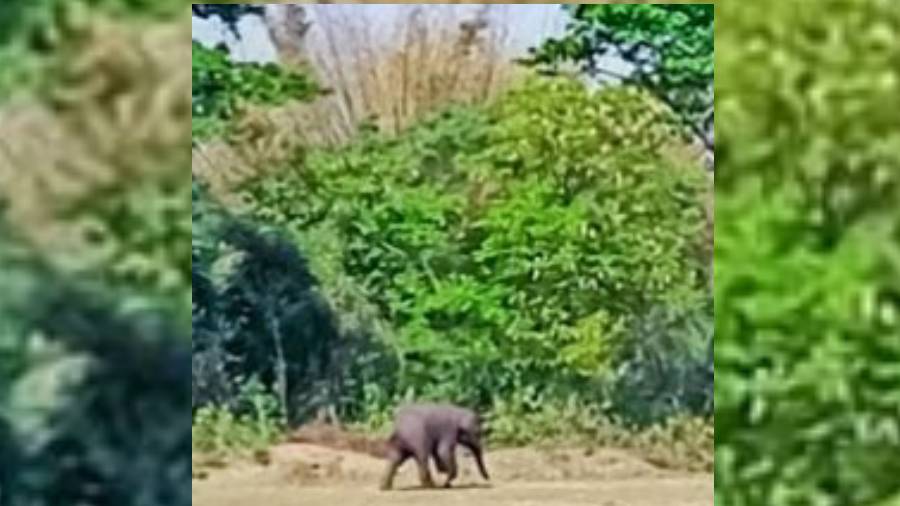The state forest department has decided to build a home where rogue elephants of south Bengal will be kept in captivity after being darted, instead of relocating them in the wild to a different landscape.
“We have decided to have a centre for captured elephants of south Bengal. What we do now is capture a rogue elephant andrelocate it to either north Bengal or Jharkhand border. Once the centre is ready, the rogue elephants will be captured and kept in this huge enclosure, which will be spread across 200 to 250 hectares,” Soumitra Dasgupta, principal chief conservator of forest and head of forest force in Bengal, told The Telegraph.
“They will be provided fodder and water. It will be a natural condition but will be separated from the absolute forest area by means of very strong fencing. Some of them, if they are captured young, can be trainedto become kumkis (trained, captive elephants),” hesaid.
The usual practice in south Bengal is to capture a rogue elephant and send it to north Bengal, where the forests are bigger and denser. But that does not guarantee that the translocated elephant will not come into conflict with humans again, said researchers.
This newspaper had on March 1 reported that the state forest department had identified multiple elephants, all bulls and loners, which officials said were responsible for the majority of human deaths. The state had secured permission from the Centre to relocate 10 such jumbos.
Four elephants have already been captured in south Bengal in the past few months, the last one on Tuesday. Two of them were sent to Buxa Tiger Reserve in Alipurduar, where the forests are bigger than those in south Bengal and one to forests along the Bengal-Jharkhand border. The one that was tranquillised and captured on Tuesday was sent to Jhargram Zoo for medical examination.
Multiple researchers had then said relocation was not a solution but just shifting the problem from one place to another.
“Rogue elephants are mostly young bulls trying to find new territories. When they are sent to a new place, the natural tendency is to try and go back to the original place. In such attempts, it is quite possible that they come into conflict withhumans again. The elephant is anyway having todeal with an elevatedstress level,” said Aritra Kshettry, a wildlife ecologist who has in the past worked with the state forest department.
On Tuesday, Dasgupta acknowledged the challenge.
“Relocation is deflecting the problem. It is not a solution. The number of rogue elephants should be reduced. We cannot kill them. So, we have to capture them and keep them captive. There are international precedents. It has been done in Sri Lanka and South Africa. In India, Karnataka has done it. Now, it will be done in Bengal,” he said.
“We are in the final stages of selecting a place (to house rogue elephants). A final decision will be made in a day or two. It willcome up in the forests of southwest Bengal. Wewill be calculating the carrying capacity. In 200 hectares, we can keep 14-15 elephants,” said Dasgupta.
Raman Sukumar, a professor at the Indian Institute of Science in Bangalore who has studied elephant movement for decades, had earlier this month told this newspaper that relocation was unlikely to be fruitful in the long run.
Told about the new plan to keep the captured elephants captive, Sukumar said it seemed the most viable option.
“There is a dearth of real natural habitat for elephants in south Bengal. The options are very limited for translocation. Other states are unlikely to accept your elephants. You cannot keep sending them to north Bengal, which already has an abundant elephant population. So, by and large, I think there is no other option than to capture them and keep them in captivity,” he said.
